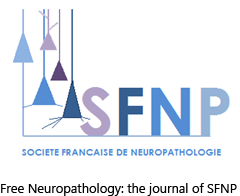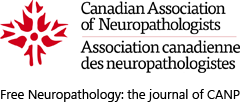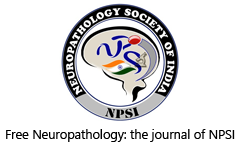Constitution
Free Neuropathology
Constitution
1. Mission Statement
Free Neuropathology (FNP) is a non-commercial, diamond open-access, online only journal run for and by neuropathologists as well as clinical and experimental neuroscientists. It is committed to the mission of providing high-quality scientific content, made freely available for a scientific and general audience worldwide.
FNP is dedicated to human and experimental neuropathology. It publishes contributions on pathology and mechanisms of neurological disease. Papers are selected on the basis of scientific quality, technical quality (writing, figures), interest to the community, novelty and scope.
FNP adheres to guidelines of scientific publishing as laid out by ICMJE and COPE.
The "5Fs" are central to the spirit of FNP and reflect the journal´s unique character:
Free for authors means that there is no article processing fee.
Free for readers means that the journal is published open-access without paywalls or any other restrictions of access. Together, these two features constitute diamond open access. There is no income, no financial donation, no commercial advertising and no budget. Any expenses (editorial office, travelling, promotion, software, disk space etc) are covered by academic institutions.
Free from publisher means that FNP overtakes all activities which traditionally have been carried out by publishers, including but not restricted to copyediting, layout, permanent archiving of papers, maintenance of website, and promotion. This is based on the insight that the interest of commercial publishers in profit rather than in science has led to an economical and ethical crisis in scientific publishing.
Free formatting means that FNP refrains from exuberant formal requirements and extremely detailed instructions for authors, which abound in many scientific journal. However, FNP places much emphasis on a professional and appealing appearance of papers and supports consistent formatting within the paper according to authors´ preferences.
Free opinion means that in addition to traditional categories of papers such as original papers, review articles and letters, FNP publishes opinion pieces expressing personal or minority (yet scientifically founded) views, and that FNP encourages frank scholarly discussion among authors and readers, among the editorial board members, and among scientists and the public.
While FNP enthusiastically supports various kinds of freedom, the journal´s specific structure requires a few regulations which are the tenor of this constitution. For reasons of transparency the constitution is published on the journal´s website.
2. Editorial Structure
The General Assembly is composed of the Editors, the Editorial Boards and the Ombudsperson. The General Assembly is the owner of the journal title. Neither the General Assembly, nor any individual member of it, can transfer (their share of) ownership of the journal to a third party. Ownership of the journal title represents no monetary value. The General Assembly is authorized to approve and modify the Constitution, which requires a two third majority of votes.
The Editors are responsible for making strategic decisions after consulting with the Editorial Boards and regularly reports to the Editorial Boards and the Ombudsperson. The Editors appoint members of the Editorial Boards, runs the Editorial Office, and organizes the editorial/publishing workflow. The Editors make final decisions on acceptance or rejection of submitted manuscripts and on technical issues such as copyediting, layout, website and promotion. The Editors are elected and appointed for a term of five years by the members of the Editorial Boards. The ballot is managed by the Ombudsperson. The Editors can resign at any time provided the resignation is announced three months in advance. The Editors can be discharged by the Editorial Boards which requires a two third majority of votes.
There are two Editorial Boards: the Board of Associate Editors and the Board of Copyediting/Layout Editors. Associate Editors are expected to be involved in a variety of activities, such as strategic planning, promotion, handling of manuscripts, providing advice on improving and developing the website, the manuscript submission/handling system or social media channels, and many other issues. Copyediting/layout Editors undertake careful copyediting and/or high-quality layout of accepted manuscripts. Members of the Boards are appointed by the Editors for an initial term of three years with the option of extension. Editorial Board members can resign at any time. Selection for Associate Editor specifically takes into account the candidate's excellent standing with respect to commitment and previous editorial service rather than relation with the Editors or famousness. In case of missing cooperation Editorial Board members can be uninvited by the Editors after consulting with the Ombudsperson at any time. The Editors will strive to balance the Editorial Boards with respect to scientific areas, geography and gender.
The Ombudsperson is responsible for mediating between authors and the Editors as well as between Editorial Board members and the Editors in case of any disagreement that cannot be resolved otherwise. The Ombudsperson is appointed by the Editors after consulting with the Editorial Board for a term of five years. The Ombudsperson can resign at any time provided the resignation is announced three months in advance.
10 April 2020


















